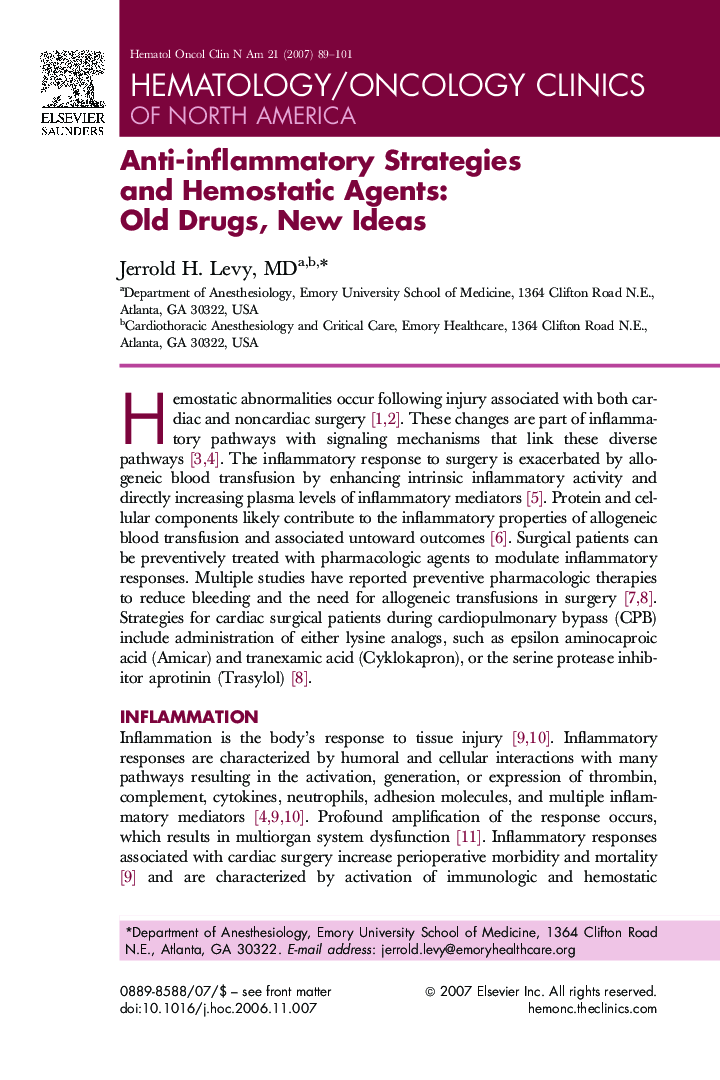| Article ID | Journal | Published Year | Pages | File Type |
|---|---|---|---|---|
| 3332162 | Hematology/Oncology Clinics of North America | 2007 | 13 Pages |
Hemostatic abnormalities occur following injury associated with both cardiac and noncardiac surgery. These changes are part of inflammatory pathways with signaling mechanisms that link these diverse pathways. The inflammatory response to surgery is exacerbated by allogeneic blood transfusion by enhancing intrinsic inflammatory activity and directly increasing plasma levels of inflammatory mediators. Surgical patients can be preventively treated with pharmacologic agents to modulate inflammatory responses. Multiple studies have reported preventive pharmacologic therapies to reduce bleeding and the need for allogeneic transfusions in surgery. Strategies for cardiac surgical patients during cardiopulmonary bypass include administration of either lysine analogs, such as epsilon aminocaproic acid and tranexamic acid, or the serine protease inhibitor aprotinin.
